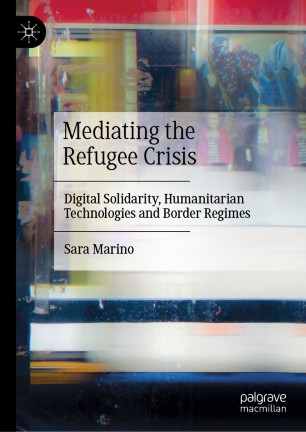

Most ebook files are in PDF format, so you can easily read them using various software such as Foxit Reader or directly on the Google Chrome browser.
Some ebook files are released by publishers in other formats such as .awz, .mobi, .epub, .fb2, etc. You may need to install specific software to read these formats on mobile/PC, such as Calibre.
Please read the tutorial at this link: https://ebookbell.com/faq
We offer FREE conversion to the popular formats you request; however, this may take some time. Therefore, right after payment, please email us, and we will try to provide the service as quickly as possible.
For some exceptional file formats or broken links (if any), please refrain from opening any disputes. Instead, email us first, and we will try to assist within a maximum of 6 hours.
EbookBell Team

4.0
6 reviewsThis book looks at how Europe’s refugee crisis has provoked different political and humanitarian responses, all similarly driven by technology. The author first explores the transformation of Europe into an increasingly militarised space, where technologies are mainly used to exercise surveillance and to distinguish between citizens and unwanted migrants. She then shifts the attention to refugees’ practices of connectivity by looking at how technologies are used by refugees to communicate, perform and resist their exile. Finally, the book examines the opportunities and challenges that characterise the impact of digital social innovation in humanitarian settings. By focusing on how technologies are used to promote solidarity in crisis contexts, the volume provides an original contribution to studying the role of tech for good activism within the space of Fortress Europe. Based on interviews with refugees, digital humanitarians and social entrepreneurs, the book timely questions what Europe means today, and why dialogue is now more important than ever.